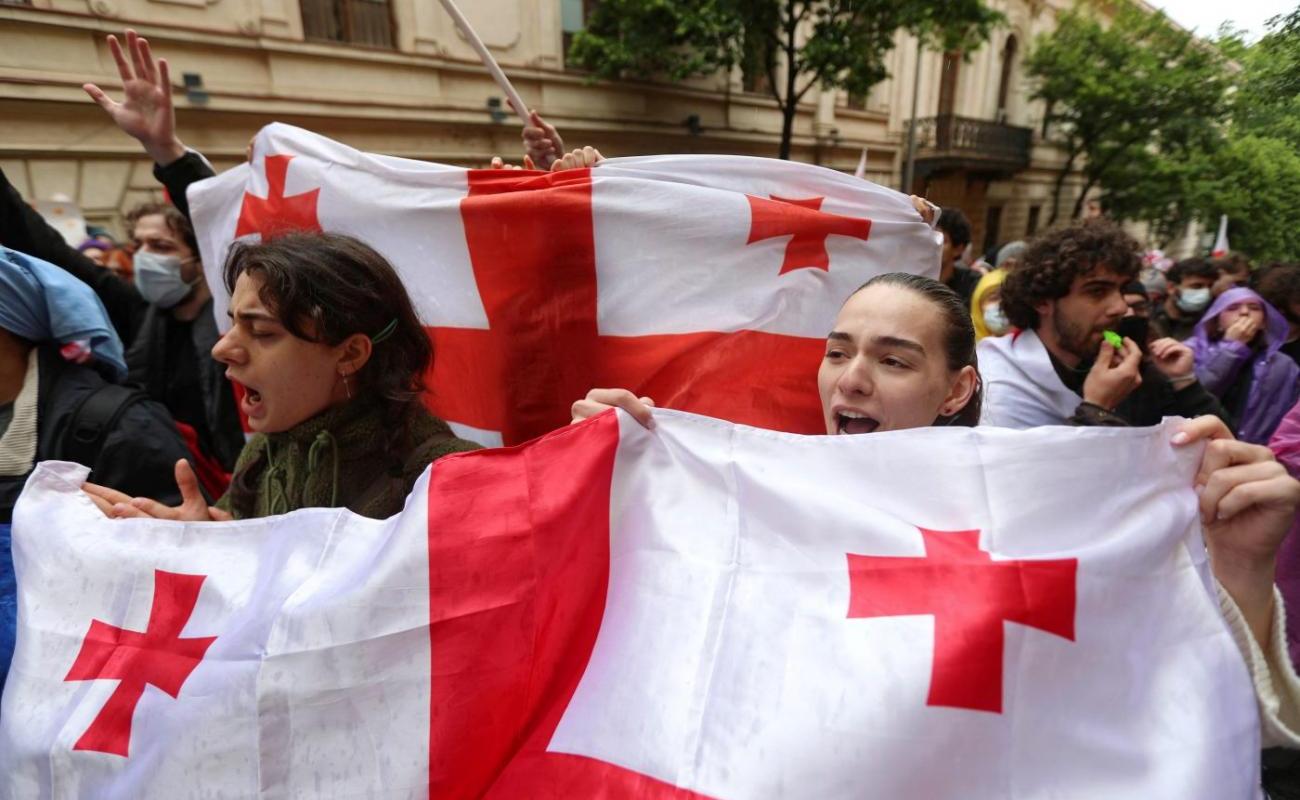Georgia Braces for Post-Electoral Trouble

The only certainty to emerge from Georgia’s parliamentary vote on October 26 is that nothing is certain.
Widely billed as an East versus West choice, most votes have been counted but there is no accepted winner. The post-electoral landscape is fogbound; mass demonstrations are promised from October 28; and the rhetorical exchanges are nasty and getting worse. It’s not a happy outcome.
That was underlined when victory was declared by both sides.
Georgia’s ruling party Georgian Dream (GD), which has promised arrests and trials of opposition figures, pointed to official figures from the official electoral commission that showed it winning nearly 54% of the vote. The rest went to the opposition which claimed nearly 44%.
The statistics showed the ruling party registering its greatest support in rural areas while losing in major cities. For instance, the maximum vote for Georgian Dream within the capital Tbilisi, was 44%, while the minimum stood at 33% highlighting the growing unpopularity of the party among urban-dwellers.
However, the official results could not explain a sharp divergence from two exit polls carried out by Western agencies. These showed Georgian Dream on around 41%-42% and the opposition taking the majority of votes. This fueled widespread indignation and allegations that the vote had been manipulated. Social media was filled with images of ballot stuffing and men fighting outside polling stations. Some claimed to detect evidence of malpractice.
Georgia’s anti-government President Salome Zourabichvili led the complaints, saying the result was a “complete falsification” in what she termed a “Russian special operation.” Several opposition parties rejected the official outcome and said they would boycott the new parliament.
The issue was hardly helped by foreign observer missions whose reports were extraordinarily detailed but failed to offer much clarity. The Organization for Security and Cooperation in Europe (OSCE) interim findings were 21 pages long and offered many examples of voting problems without offering a concise overall judgment.
Nonetheless, it said that in 6% of cases, observers had witnessed issues including pressure on and intimidation of voters, which it termed “a significantly high number.” In addition, it said in 24% of cases, voting secrecy was compromised and that Georgian Dream representatives were filming voters (although this is not illegal.) Both Georgian and international observers reported an overall unfair electoral landscape where the ruling party enjoyed significant influence.
The opposition parties have continuously criticized the central electoral commission for its perceived alignment with the government, noting that electoral reforms were implemented hastily and without sufficient public consultation.
Georgian Dream argued that any inconsistencies were part of the election process in all countries and that the party won decisively with more than one million votes.
US and European officials have been warning for months that the ruling party’s plans indicated a shift away from a liberal democratic European course and toward Russia. The Kremlin welcomed the vote and accused the West of seeking to destabilize the country.
If Georgian Dream does — as appears likely — take office again, its future path seems very different from what has gone before. Its billionaire founder Bidzina Ivanishvili has called the West “the party of war”, the government has passed a repressive foreign agents law and announced a crackdown on what it terms LGBT+ propaganda. It has suggested “Nuremberg-style trials” of opponents.
Both the US and EU called for an inquiry into what exactly had happened during the vote, but there is worryingly little argument about what happens next — a historic falling out between Georgia and its former Western friends.
This may happen quite slowly. The West will likely choose a more cautious wait-and-see approach and perhaps apply measured but incremental pressure on Tbilisi.
There is, despite the darkening sky, a possible compromise whereby Georgian Dream agrees that in exchange for international recognition of the election results, the ruling party might look into repealing the foreign agents and LGBT+ law. This could potentially leave the country’s Western partners satisfied and the opposition less outraged than they are at present.
If that did happen, it would indicate that the ruling party overall was motivated by a strategy of diluting potential Western criticism and sidelining the political opposition inside the country. The controversial laws therefore would have been a means to achieve a political victory.
The alternative is a long series of street protests and a parliament devoid of the opposition. Eventually, that might end with something similar to 2020, when after a months-long delay, the opposition finally accepted and took its seats in parliament, defusing the political crisis but leaving a large part of the population feeling betrayed by the climbdown.
The Georgian elections are very clearly now part of a broader geopolitical struggle that has intensified between the West and Russia since the Kremlin’s all-out invasion of Ukraine.
Moldova, Ukraine, and Georgia, the borderlands as they are often referred to, have come under tremendous pressure from the Russian side.
If the main outcome of the election is only to increase tensions between Tbilisi and the EU/US, Russia will benefit most.
Emil Avdaliani is a professor of international relations at the European University in Tbilisi, Georgia, and a scholar of Silk Roads.
Europe’s Edge is CEPA’s online journal covering critical topics on the foreign policy docket across Europe and North America. All opinions are those of the author and do not necessarily represent the position or views of the institutions they represent or the Center for European Policy Analysis.
